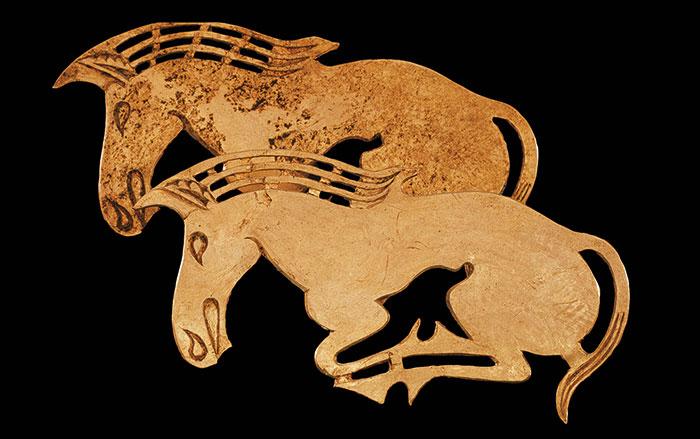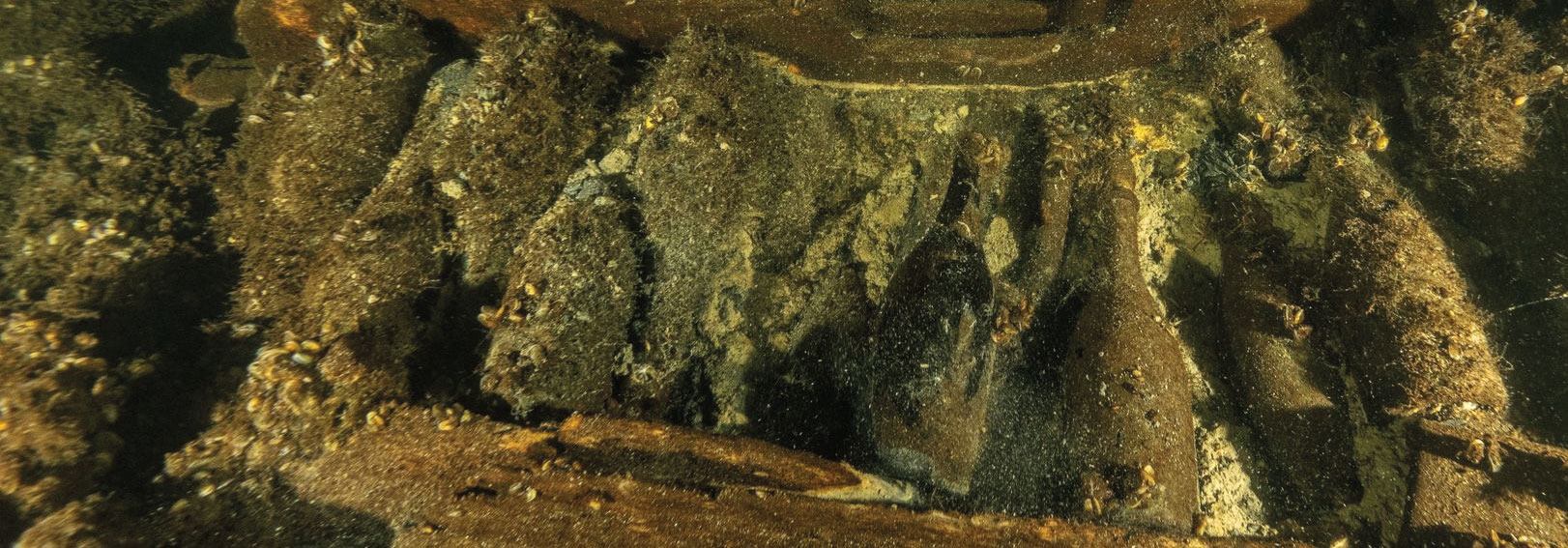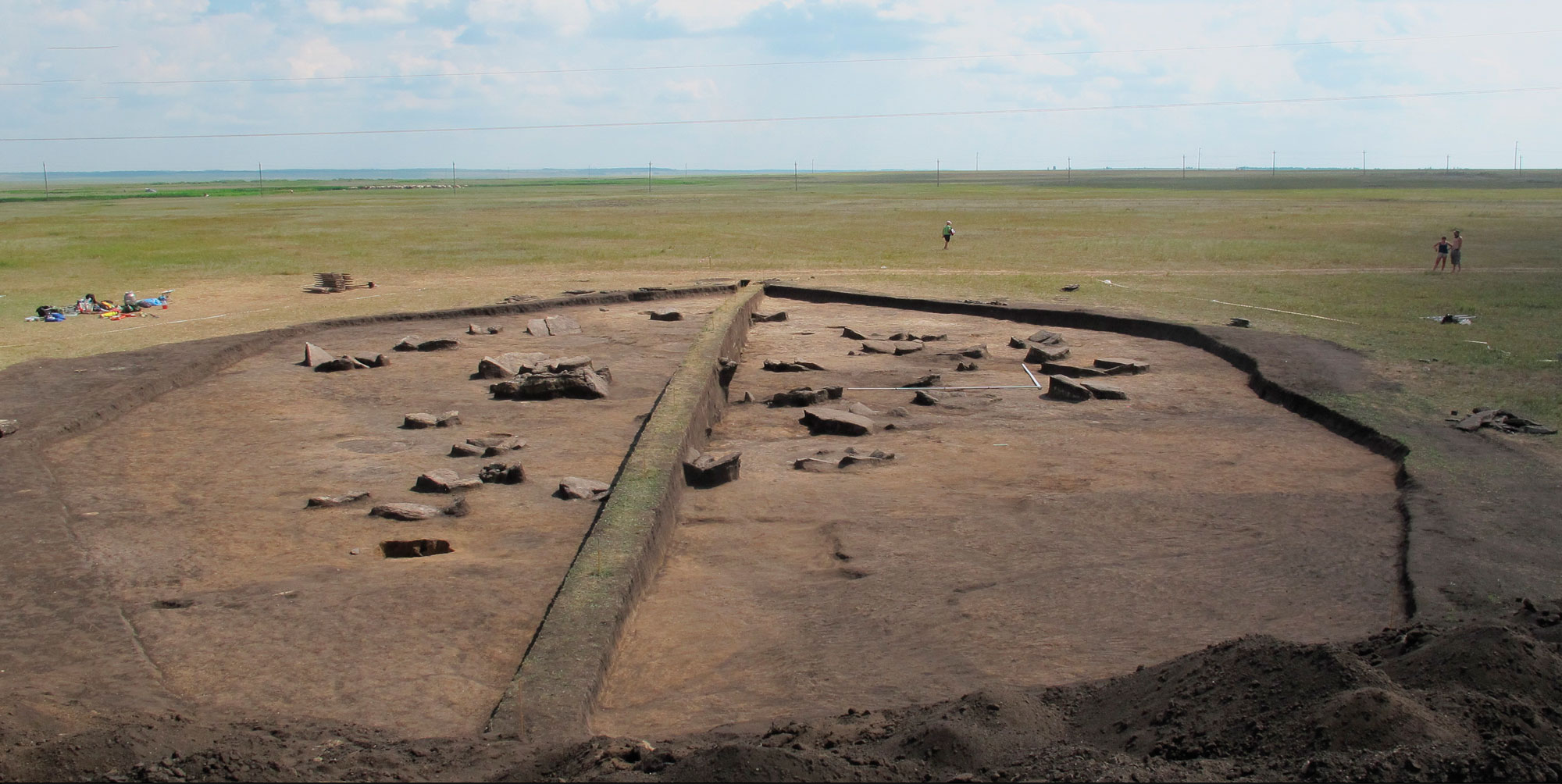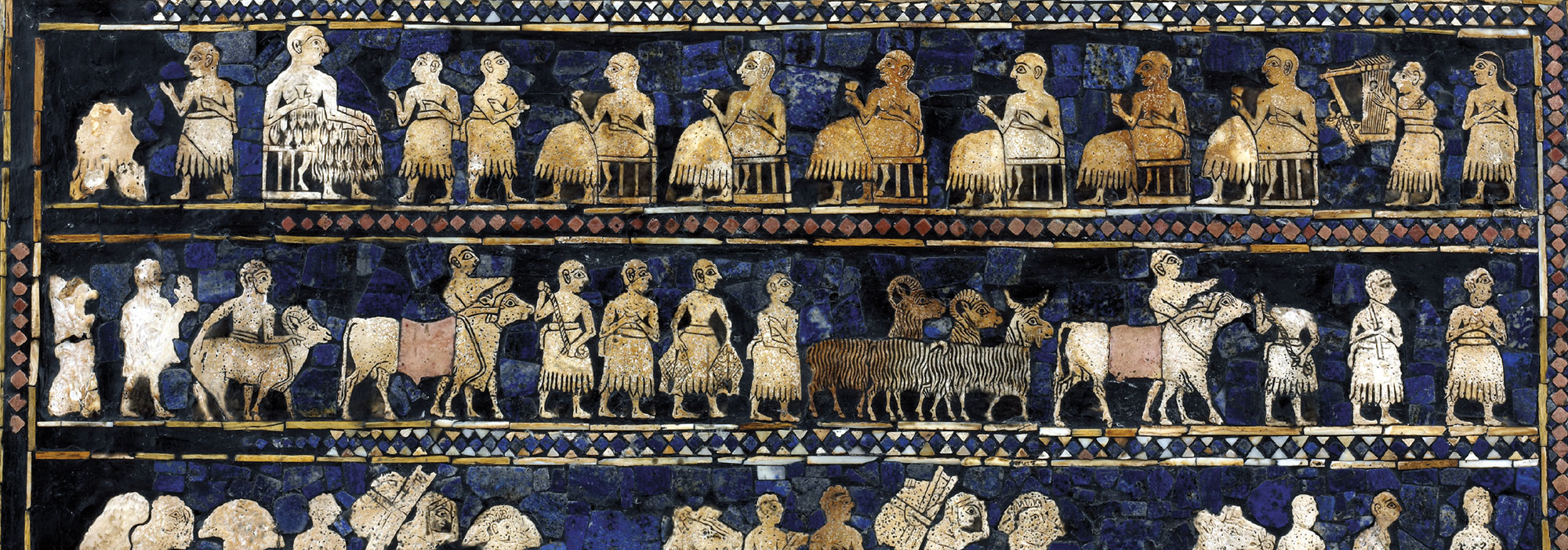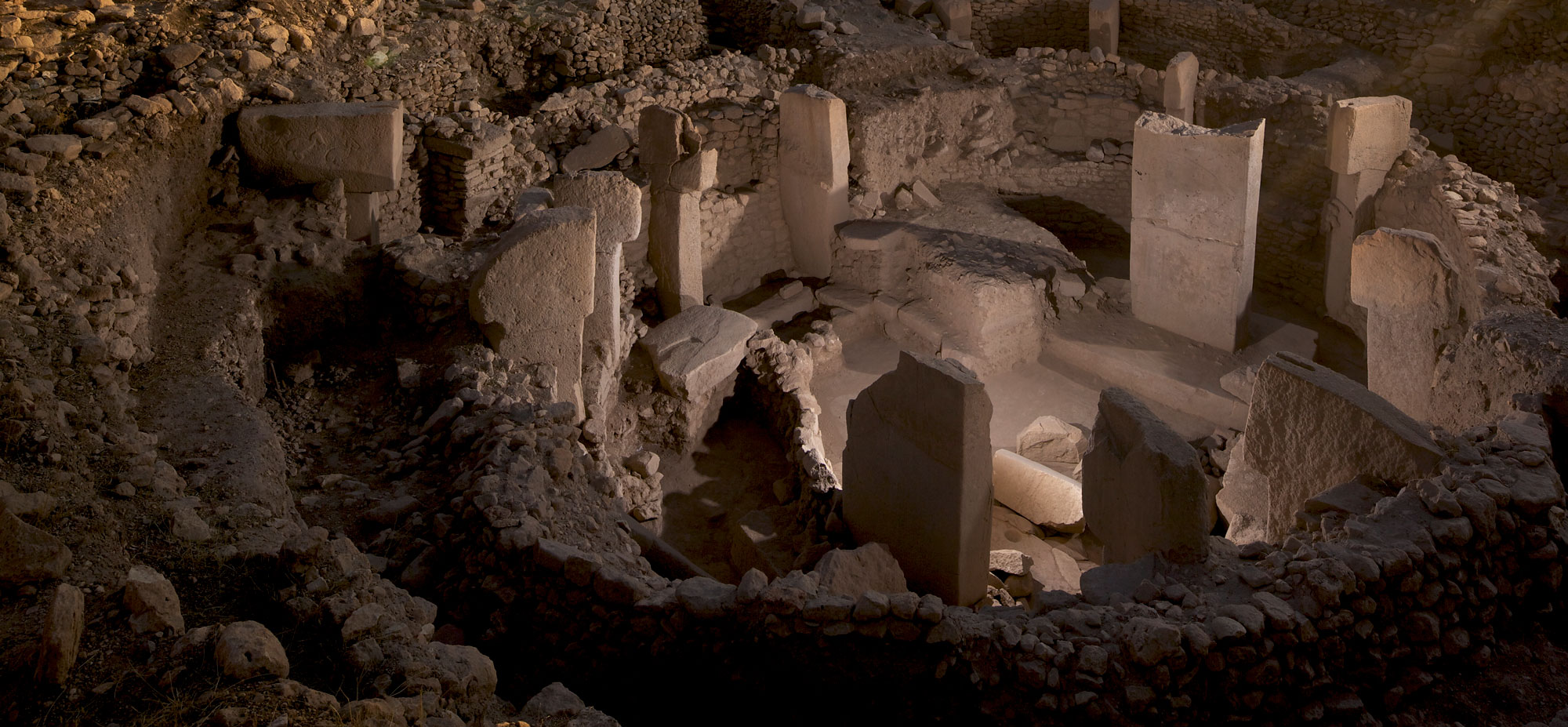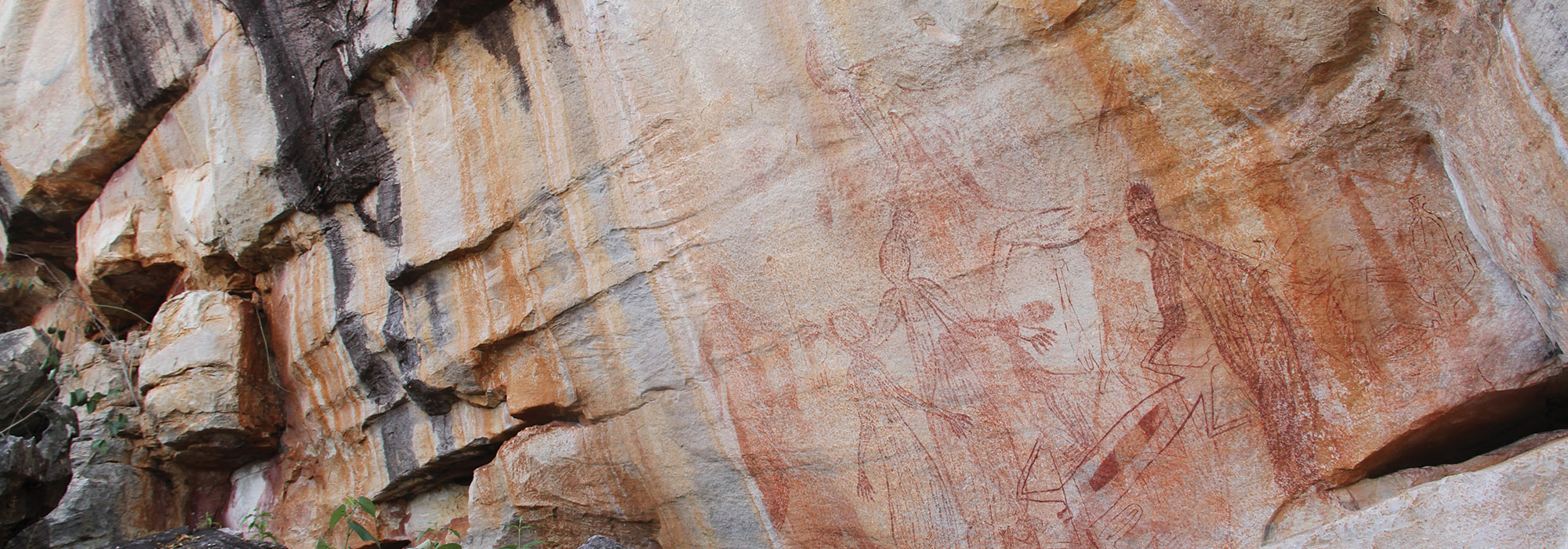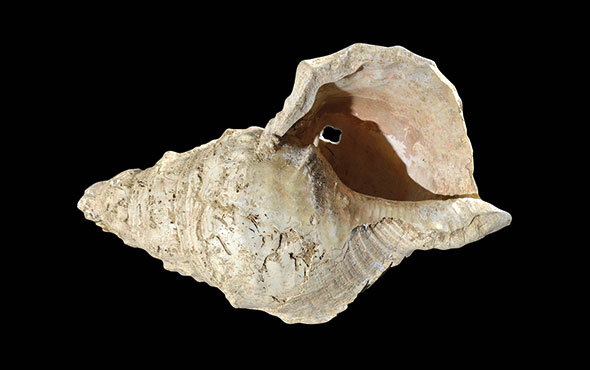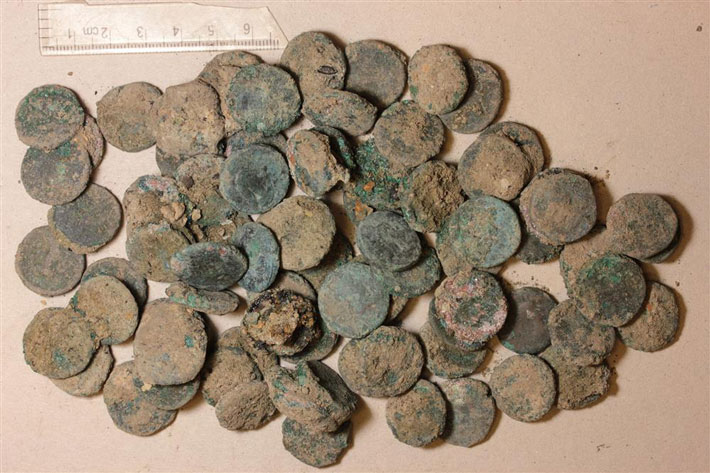
KRASNODAR KRAI, RUSSIA—According to an ArtNet News report, researchers led by Vladimir Kuznetsov of the Russian Academy of Sciences' Institute of Archaeology uncovered the broken neck of an amphora holding 80 copper staters in Phanagoria, an ancient Greek city located in southwestern Russia. The coins are thought to have been hidden before an attack by the Huns or the Turks, who burned large sections of the city and left the coins covered in ash and fire-damaged wooden floors. A broken baptismal font suggests that an early Christian basilica stood on the site where the coins were found. The copper staters are thought to have been minted in the late third or early fourth century and circulated through the sixth century. To read about another coin cache found at Phanagoria, go to "Palace of Mithradates," one of ARCHAEOLOGY's Top 10 Discoveries of 2009.



